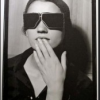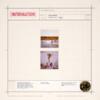-
Posts
17 -
Joined
-
Last visited
Reputation Activity
-
 Flaneuse got a reaction from MGART in You have been accepted! Can you help us, PLEASE?
Flaneuse got a reaction from MGART in You have been accepted! Can you help us, PLEASE?
I agree that there is not a specific formula for getting accepted into the program of your dreams, but there are a few things (based on my experience and research) that will take your application to the next level and set you apart, especially if you study a popular subfield.
1. Submit your best piece of writing for the writing sample. It really doesn't have to be in your specific field of study. I was also told by a prof that if you are applying to work on modern or Renaissance, it can be beneficial to show you can critically think and write about a field other than your own specific one.
2. I cannot stress how important the SOP is. I went through 23 drafts before I submitted mine and worked on it from September to December. Possibly a bit excessive, but it worked.
3. GREs aren't really that important. (Not worth your tears or deepest anxieties). I aced the writing, did above average on the verbal, and basically failed the math. I'm just not a good standardized test taker. I've known this about myself for years and therefore knew that the rest of my application had to be nearly flawless to make up for this weakness.
Hope this helps! I would be overjoyed if I could add some insight on this crazy process that would help a fellow histart lover continue pursuing their dreams.
-
 Flaneuse got a reaction from ChurchLover in GRE Quant horror for Art Historians
Flaneuse got a reaction from ChurchLover in GRE Quant horror for Art Historians
I had an abysmal quant score and am now incredibly happy at my top choice program. Last year at this time, I was SO worried about my GRE score, knowing that it was the weakest point of my application. Clearly, it didn't stop me from getting into a great program, nor will it stop any of you. Spend your time revising your SOP & writing sample--they're what matter most.
-
 Flaneuse reacted to ameshu205 in top ten PhD programs in art history according to you....
Flaneuse reacted to ameshu205 in top ten PhD programs in art history according to you....
Because I’m forever curious about how our field works – and because I’m avoiding a bit of real work – I pulled together a few lists of programs’ placement rates for:
Pre-Doc Fellowships, 2010-2014: https://docs.google.com/spreadsheet/ccc?key=0AlLRiFPXoh9HdF9LUEs3QlFUOVVzclFKNUxxWmhuSXc&usp=sharing
Assistant Professor jobs, 2006-2013 (very narrowly defined; see below): https://docs.google.com/spreadsheet/ccc?key=0AlLRiFPXoh9HdDRtWkdRbmVPY0tWY0NtbkJfZFJhYXc&usp=sharing
Take-away point (TL;DR): These lists should NOT to be taken as the last or definitive word on anything, but rather, as springboards for further additions, reflections, and conversation. If anything, I hope they reinforce the points made by many others (above and in other threads) of the impossibility of ranking programs objectively, at least based on the metrics set out here.
Thoughts on methodologies of gathering info:
Pre-Doc fellowships: This list seemed fairly straightforward, although it certainly reflects the areas I know best. I tried to include fellowships with multiple recipients per year (the Frick doesn’t fit into this category, but it was mentioned in a list in another thread); and so much the better if they cut across multiple sub-fields (CASVA, the Met, etc.). What fellowships have I overlooked? Assistant Prof. jobs: This list seems much more problematic to me, although it certainly does show interesting trends. I tried to follow the methodology laid out by the Art History Newsletter (AHN; http://arthistorynewsletter.com/blog/?p=476 and http://arthistorynewsletter.com/blog/?p=483) – surveying the top 25 schools from the US News and World Report lists for both national research universities and small liberal arts colleges. The job market being what it is right now, I expanded their categories slightly to include not just the top rankings in each category, but also schools with particularly strong art history departments or university museums. I surveyed about 75 schools in all, but obviously, this is the biggest issue with this (quite incomplete) survey – without looking at a far bigger sample size, I don’t think it’s truly possible to draw any definitive conclusions about placement rates. Another problem with this list is the types of jobs it includes. Following the structure of the AHN survey, I looked at only tenure-track assistant professors at each school. While this makes comparisons between the two surveys possible, I don’t think it reflects the realities of today’s job market (vs. the job market in 2007, when the AHN list was compiled). The limitation to just TT assistant profs means that, even though it’s become standard practice to spend a few years as a visiting assistant professor (non-TT) or on a post-doc fellowship, these positions aren’t included on the list.
Further caveats:
I’m absolutely certain that art historians who have earned their PhDs from Indiana, Maryland, OSU, Penn State, WashU, and Case Western since 2006 are out there doing fantastic work, despite what this list says. They just happen not to be working at the places I researched. These job numbers represent only a fraction of all possible jobs that are held by PhD graduates. Among those are many curators, many professors who earned tenure more quickly, and many scholars who teach at places not surveyed. (If the data for recent curatorial hires were easily available, I certainly would have included that info too!) I’m refraining from putting forth conclusions from this data, given its significant limitations (although I’ve realized, in doing this, how very many issues I have with the methodology set up by the AHN list…). But even taking these issues into account, I hope that the lists might generate some productive and interesting discussion. Thoughts? Reactions? Comments?
And apologies, of course, for enabling anyone’s procrastination!
-
 Flaneuse reacted to Swagato in Art History bibliographies and SOP stress?
Flaneuse reacted to Swagato in Art History bibliographies and SOP stress?
I think it's a little dangerous to make some of the assumptions m-ttl has made in this thread. As someone currently in one of "those" programs, I should emphasize that my peers are comprise a surprisingly diverse lot. I mean diverse in all its senses. Not everyone wants to be a professor. A friend is currently doing a year at MoMA.
And, entirely anecdotally, I certainly do not fit the "privileged" framework, hence why I say it is risky to make such blanket assumptions.
As for museum work, I'm not sure you have in mind. A lot of "museum work" involves research that can compete with the best "academic" research out there. Many people here have past museum experience, or have worked at museums/archives as part of their graduate training. Clearly, the emphasis is on *research* rather than, say, organizing day-trips for high schoolers. Much depends on what, exactly, you wish to achieve.
-
 Flaneuse reacted to EloiseGC in Future article ideas
Flaneuse reacted to EloiseGC in Future article ideas
I can't wait until I'm famous enough to have a really great unreasonable feud with a well-respected scholar. Norman Bryson, I'm coming for you, old man.
-
 Flaneuse reacted to fullofpink in Grad School Safeties?
Flaneuse reacted to fullofpink in Grad School Safeties?
"Safeties" do not exist in grad school. I applied to doctoral and MA programs, and I was rejected from the MA program but given 6 years of guaranteed funding and stipend from the PhD program I'm going into.
Find the best "fit" (an adviser who specializes in your field, and a school that meets your theoretical and methodological goals). You'll have a better chance at the school you are most excited about if the fit is right, than the school you begrudgingly apply to because you can't just apply to one (haha)
-
 Flaneuse reacted to acanthus in New Graduate Student Fears
Flaneuse reacted to acanthus in New Graduate Student Fears
You will continue to feel this way for a long time. You should continue to feel this way. They didn't make a mistake in admitting you, but your future professors and advisors know that you have a vast amount still to learn. I think it's healthy for you to know that too. Honestly, right now, you're probably not very good! Even if you've done a MA, if you've spent years in curatorial fellowships, whatever, being a good Ph.D. student is something that you need to learn by immersion. If you're going to a good program, that's what your next several years of coursework is for. You'll get there. Take risks with your term papers. Try on new methodologies for size as you encounter them. Maybe most importantly, don't worry about "keeping up" with your future peers, or even worse, competing with them. Most likely, some of your classmates will blow you away with how adept they are at certain things. You'll undoubtedly outpace them in certain aspects as well. Treat your colleagues as the most valuable resources that the grad school setting has to offer. When one of your classmates' seminar paper presentations makes yours look like a 3rd grade modeling clay diorama in comparison--this will happen, so many times--take them out for a beer and pick their brain. Instead of comparing your own work to that of your peers, consider work you admire as a model to examine. Why was it so good? What questions were they asking? How was it organized? How, when, and to what effect did they incorporate visual analysis? It took me longer than it should have to really understand this, but it's so, so good for you to have kickass colleagues.
-
 Flaneuse reacted to EloiseGC in New Graduate Student Fears
Flaneuse reacted to EloiseGC in New Graduate Student Fears
I think that, to a certain extent, some of us might be suffering from pre-grad school Impostor Syndrom.
From Wikipedia:
"The impostor syndrome, sometimes called impostor phenomenon or fraud syndrome, is a psychological phenomenon in which people are unable to internalize their accomplishments. Despite external evidence of their competence, those with the syndrome remain convinced that they are frauds and do not deserve the success they have achieved. Proof of success is dismissed as luck, timing, or as a result of deceiving others into thinking they are more intelligent and competent than they believe themselves to be."
http://en.wikipedia.org/wiki/Impostor_syndrome
I mean, think about it. We spend months dealing with the grueling process of applying to schools, being judged, being rejected, feeling worthless when that one school cuts you, being disappointed, only to FINALLY have that perfect school descend down and pluck you from your despair. Okay, maybe that was just me! But really, after being rejected from so many mediocre schools, only to be accepted by one of my top schools? Breeding ground for self-doubt and the feeling that someone there made a mistake!
-
 Flaneuse reacted to EloiseGC in New Graduate Student Fears
Flaneuse reacted to EloiseGC in New Graduate Student Fears
Are any of y'all nervous or anxious about the upcoming semester? Apprehensive about moving to a new city, worried about how you'll get along with your advisor, or nervous about how you'll compare to your fellow graduate students?
I figured that this community could probably provide more effective support/reassurance than most others!
So, if you're all like
we can
and be
because
-

-
 Flaneuse reacted to Bearcat1 in Art History/Visual Studies/Material Culture Final Decisions 2013
Flaneuse reacted to Bearcat1 in Art History/Visual Studies/Material Culture Final Decisions 2013
"Bump"
-
 Flaneuse reacted to anonymousbequest in Will we ever get jobs?
Flaneuse reacted to anonymousbequest in Will we ever get jobs?
I also think that the job market is more diverse than just saying that only PhDs from T-20s get all the jobs (and then don't publish, which is catty and smells like sour grapes to me). It has been traditionally true that graduates from 15-20 programs end up teaching in those same programs for reasons both good and bad. And it's true, sham searches with pre-chosen candidates do still happen at some Ivies.
BUT there are also some pockets of regional strength in the mid-west and south, for example. Iowa, Kansas, Minnesota, Emory, Penn State are all fine choices, but you might have less of a shot at that TT at Yale than if you were from Harvard (except maybe in African from Iowa) but you may go to Nevada Reno, Auburn, or Missouri Springfield. It's all relative, and frankly if you had your heart set on that Yale job, it would have helped to have kicked ass in undergrad at an Ivy, top R1, or top tier LAC which feed into the T-20 grad programs, which meant that you would have needed to kick ass at a great high school that feeds into those undergraduate colleges, which meant that you most likely needed to be born into some kind or privilege or have had highly motivated parents, etc. etc. Dig too deep and it gets a little ugly.
I hope that most of you admits are not navel-gazing about what may or may not happen 8 (or 10) years from now. Cheers!
-
 Flaneuse reacted to auvers-sur-oise in "Art History" is a problematic term. Discuss.
Flaneuse reacted to auvers-sur-oise in "Art History" is a problematic term. Discuss.
In other words, http://www.youtube.com/watch?v=ieUEHtzVUgs.
Best of luck at H, ProspectStu8735. I can only assume you mean Harvard.
-
 Flaneuse reacted to BuddingScholar in Movies art historians should watch!
Flaneuse reacted to BuddingScholar in Movies art historians should watch!
Friendships forming here and being carried on into graduate school. I LOVE IT! Glad to hear that you guys chose the same school.
-
 Flaneuse reacted to manierata in Movies art historians should watch!
Flaneuse reacted to manierata in Movies art historians should watch!
i agree with a ton on this list, and would also add La Belle et la Bette, Tarkovsky's The Mirror, Bergman's Seventh Seal, as well as his Wild Strawberries, The 400 Blows, The Red Balloon, Little Otik (which I hated but is worth seeing), and let's throw in Woody Allen's Manhattan because it's my favorite movie ever (would also recommend Love and Death, Annie Hall, Stardust Memories, because of either their quality or what they have to say about art).
This year, Beasts of the Southern Wild and Moon Rise Kingdom were both sensational.
Oh, there's also a movie of Picasso painting on a lightbox which is spectacular, called The Mystery of Picasso.
-
 Flaneuse reacted to GhostsBeforeBreakfast in Movies art historians should watch!
Flaneuse reacted to GhostsBeforeBreakfast in Movies art historians should watch!
The compositions in Moonrise Kingdom gave me goosebumps.
Also, I mean...
-
 Flaneuse got a reaction from BuddingScholar in Movies art historians should watch!
Flaneuse got a reaction from BuddingScholar in Movies art historians should watch!
@Swagato, I find that fact intriguing and would love to talk to you about it in the fall! I'm curious to hear from you as a film student why you are so passionately critical of his work. It's exponentially more interesting to discuss ideas with people who disagree with you. Looking forward!
-
 Flaneuse got a reaction from Borden in Movies art historians should watch!
Flaneuse got a reaction from Borden in Movies art historians should watch!
Two words: Quentin Tarantino. Also, I recently saw Canet's Ne le dis à personne, and I highly recommend it.
-
 Flaneuse got a reaction from Swagato in Movies art historians should watch!
Flaneuse got a reaction from Swagato in Movies art historians should watch!
@Swagato, I find that fact intriguing and would love to talk to you about it in the fall! I'm curious to hear from you as a film student why you are so passionately critical of his work. It's exponentially more interesting to discuss ideas with people who disagree with you. Looking forward!
-
 Flaneuse reacted to navama in Movies art historians should watch!
Flaneuse reacted to navama in Movies art historians should watch!
"Persona" (Bergman)
"Battleship Potempkin" (Eisenstein)
"Triumph of the will" (Riefenstahl)
"Breathless" (Godard)
Later I'll add more
-

-
 Flaneuse got a reaction from poliscar in MUST READ BOOKS
Flaneuse got a reaction from poliscar in MUST READ BOOKS
I just want to make a plug for all the 19th c. modernists here and everywhere and add T.J. Clark into the mix.
-
 Flaneuse got a reaction from Borden in MUST READ BOOKS
Flaneuse got a reaction from Borden in MUST READ BOOKS
I just want to make a plug for all the 19th c. modernists here and everywhere and add T.J. Clark into the mix.
-
 Flaneuse reacted to runaway in MUST READ BOOKS
Flaneuse reacted to runaway in MUST READ BOOKS
This is a great thread with some excellent reading suggestions, but I'm getting exhausted just reading it. brazilianbuddy, there is no magic list of books that MUST be read. but if you're feeling like there are gaps in your knowledge, I'd do the following:
1. do a google search for methods syllabi from reputable universities.
2. read what grabs you. Of the books mentioned here, I think Sontag, Barthes, and Benjamin (in translation is fine, really) are the most essential. If you've never read Freud's Uncanny and at least some Foucault, cover that too. Am I right that you're interested in WWI? In that case I second Anderson's Imagined Communities.
3. For everything you don't have time to read, skim if you have a copy. If applicable, skim the footnotes/endnotes to get an idea of how this work relates to those that preceded it. Then google the author and look for the following:
- Year and institution from which they earned their PhD;
- Where they are now (if applicable);
- What else they've written, who they've published with, etc.
- Who's responded to them, dis/agreed with them, etc.
Basically, the same thing you'd do to find POI. If you're missing an idea of who knew and influenced whom, you'll quickly start to fill in the gaps.
NB: Almost all of these really canonical texts are easy to find in PDF form on google. Save your money for the obscure stuff.
Apologies if this all seems pretty basic (because it is) but I hope that it might be helpful for anyone reading this who didn't have a chance to take a methods course in undergrad.
Remember, half of grad school is being able to fake it through reading material that you simply don't have time to read. That's where skimming and simply knowing important names and the concepts associated with them can make a huge difference.
I was successful this cycle and I've read 1/3-1/2 of the texts mentioned here. I've also read some really essential stuff that's important to my work but probably irrelevant to the majority of people here. One size doesn't fit all, but I think the above method is a useful form of self-study for filling in any gaps you can identify in your own knowledge.
Also, one thing nobody's mentioned yet: it's not just about reading, but also about looking! Utilize whatever museum resources you have at your fingertips to gain a more encyclopedic knowledge of art outside your period. And/or go to the library and skim through some exhibition catalogs from exhibitions outside your subfield. There's a lot of information you can glean this way, and more quickly/efficiently than reading a monograph. This thread is pretty theory heavy, and I think it's important not to ignore other facets of our work as art historians, too.
-
 Flaneuse reacted to fullofpink in MUST READ BOOKS
Flaneuse reacted to fullofpink in MUST READ BOOKS
Graduate Study for the 21st Century: How to Build an Academic career in the Humanities, Gregory Colon Semenza (2010)
Getting What You Came For: The Smart Student's guide to Earning a MA or PhD, Robert Peters (1998)






